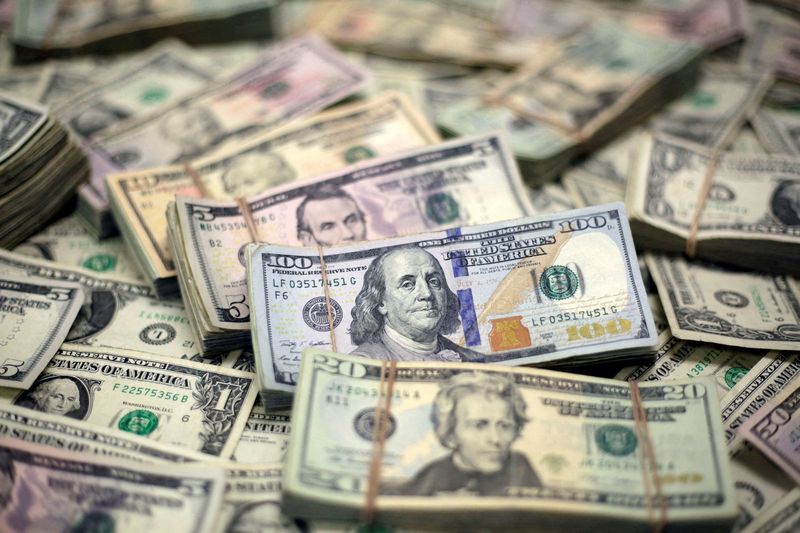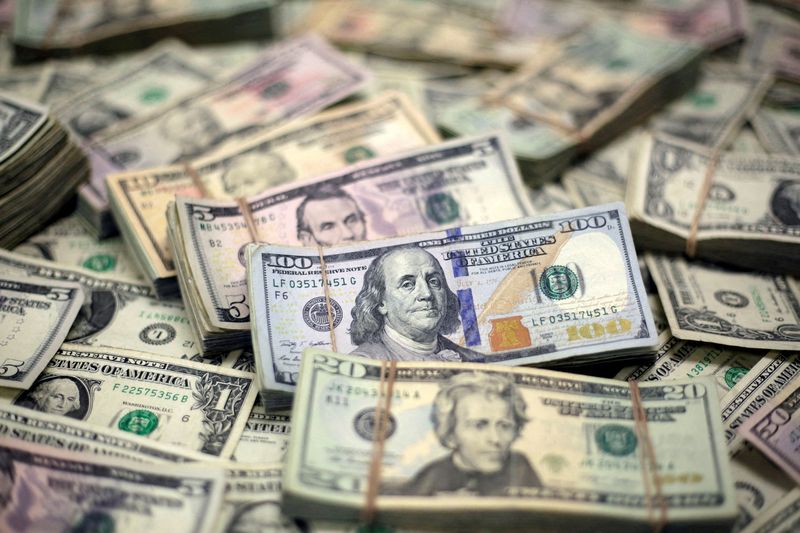
By Kevin Buckland and Brigid Riley
TOKYO (Reuters) – The U.S. dollar firmed against its major peers on Tuesday after Federal Reserve Chair Jerome Powell pushed back against bets on more supersized interest rate cuts.
The yen steadied close to the middle of its range against the dollar over the past month, after a volatile two days as traders sized up Japan’s incoming prime minister and his cabinet.
Australia’s dollar edged towards Monday’s high after upbeat domestic retail sales data.
Powell adopted a more hawkish tone in a speech at a conference in Tennessee, saying the U.S. central bank would likely stick with quarter-percentage-point interest rate cuts moving forward.
“This is not a committee that feels like it is in a hurry to cut rates quickly,” he said.
Traders remain certain that the Fed will cut again at the next policy setting meeting in November, but slashed expectations for a 50 basis-point (bps) reduction to 35.4% from 53.3% a day earlier, according to CME Group’s (NASDAQ:CME) FedWatch Tool.
“The door has not been closed on a 50 bps cut, because if economic data tanks then such a cut is warranted. But Powell clearly thinks markets are overly excited” about upcoming cuts, said Matt Simpson, senior market analyst at City Index.
The Fed kicked off its easing cycle with a larger-than-expected half-point reduction last month.
Powell’s speech came ahead of a heavy week of U.S. data, including the Institute for Supply Management’s manufacturing index later on Tuesday and non-manufacturing report on Thursday, followed by Friday’s potentially crucial monthly jobs figures.
If the ISM non-manufacturing data and jobs report come in above expectations again this month, the dollar could see a “decent bounce” higher before eventually resuming its downward track, said Simpson.
The dollar index added 0.1% to 100.82 as of 0403 GMT, after pushing 0.3% higher on Monday.
The greenback rose 0.45% to 144.27 yen , after whipsawing from as high as 146.495 yen on Friday to as low as 141.65 yen on Monday.
Shigeru Ishiba, due to be confirmed as Japan’s new premier later on Tuesday, is seen by markets as a monetary policy hawk, despite a recent toning down of rhetoric on the need for policy normalisation.
He won his party’s leadership vote on Friday in one of the closest-ever races, and is now attempting to unify the party after calling a snap general election for Oct. 27.
Minutes of the Bank of Japan’s (BOJ) September meeting showed on Tuesday that policymakers discussed the need for caution over near-term interest rate hikes, with little impact on the market.
“With Kishida out and Ishiba in, it looks the policy continuation stays,” said Andy Ji, senior Asia FX strategist at InTouch Capital Markets.
“In the short-term, (that) means the BOJ’s dovish lean gets the government blessing and the current trading strategy of USDJPY (is) buy on dips.”
The euro traded not far from Monday’s one-week low following a drop in German inflation to the lowest since early 2021, boosting speculation about another rate reduction this month.
The euro was mostly unchanged at $1.113575 after dropping as low as $1.1113 in the previous session.
European Central Bank President Christine Lagarde told parliament “the latest developments strengthen our confidence that inflation will return to target in a timely manner,” and this should be reflected in the Oct. 17 policy decision.

The Aussie was up 0.09% at $0.69185, edging back toward a 1-1/2 year peak of $0.6943 hit on Monday after Australian retail sales rebounded more than expected in August.
The kiwi traded at $0.6322, down 0.47%.
This post is originally published on INVESTING.


